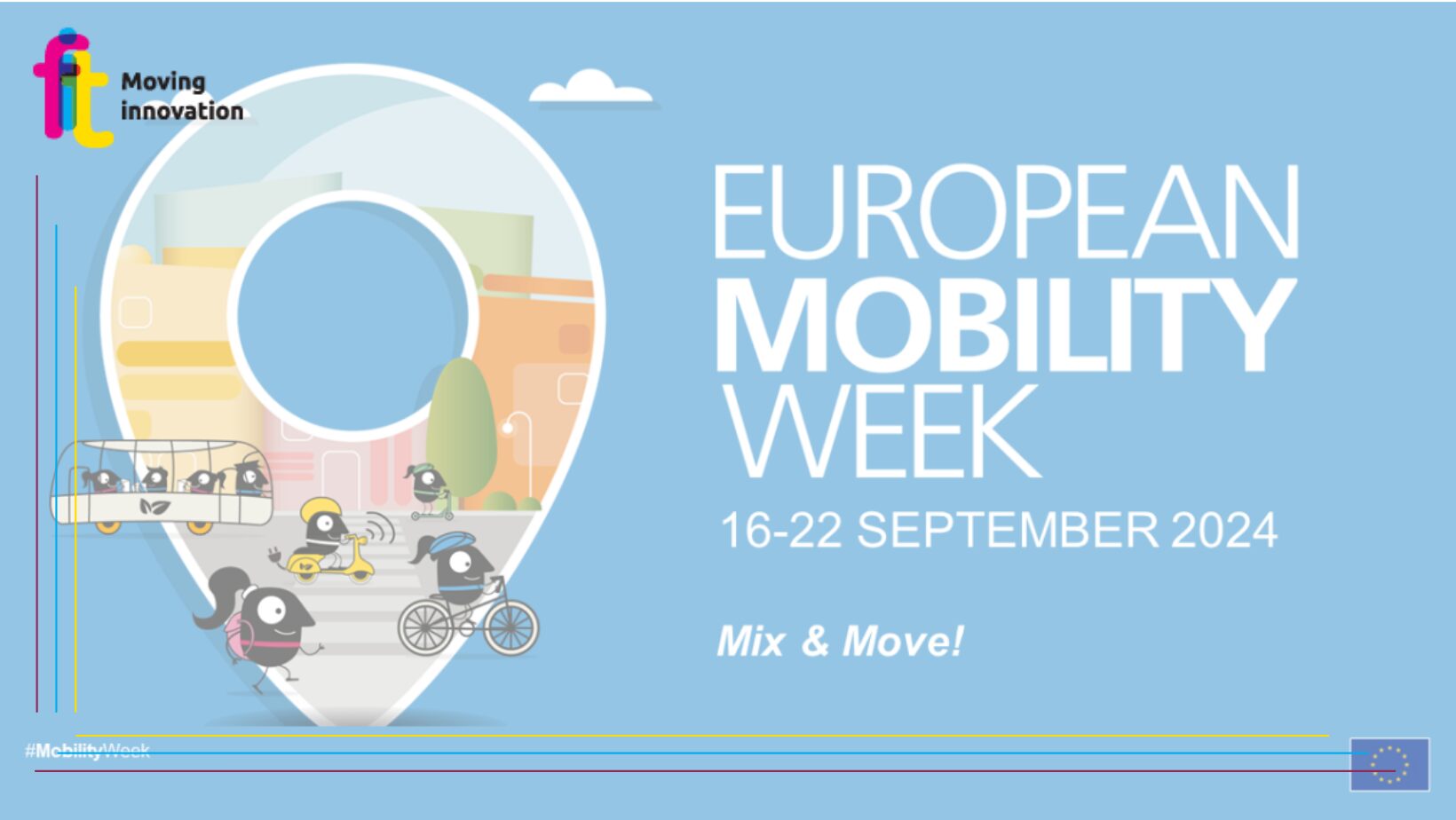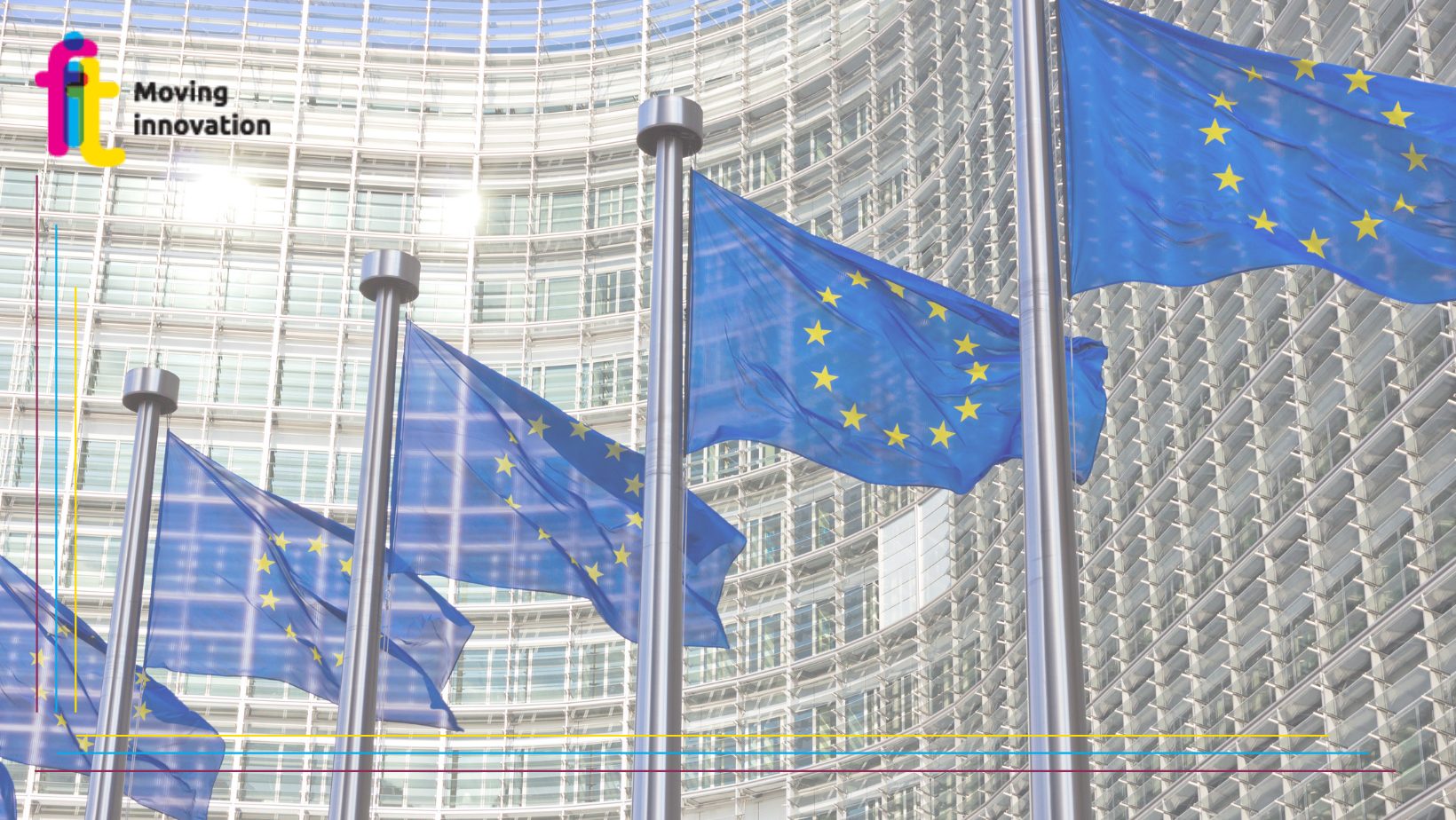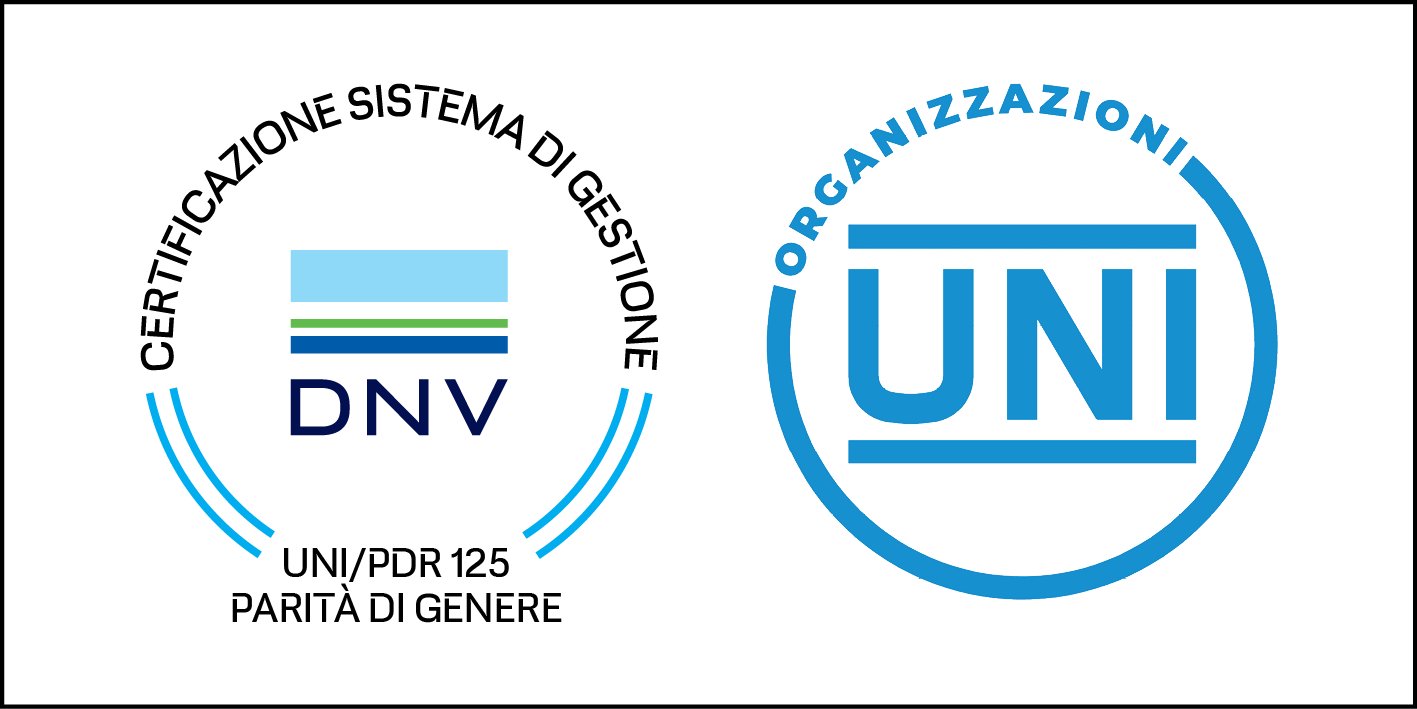From 16 to 22 September 2024 we celebrate European Mobility Week
Also this year, from 16 to 22 September, we celebrate European Mobility Week, the European Commission’s awareness-raising campaign promoting behavioural change in favour of active mobility, public transport and other clean and intelligent transport solutions. The main objectives of European Mobility Week include:
- improve the quality of urban life and promote the creation of people-centred infrastructure;
- complement other EU initiatives, e.g. REPowerEU and the European Green Deal;
- facilitate the use of less polluting means of transport and promote behavioural change by providing adequate infrastructure, networks, conditions and destinations for active mobility and public transport
The theme chosen for the 2024 campaign is ‘The Sharing of Public Spaces‘, and is based on four main thematic guidelines for action:
- Experiencing public space differently
- Let’s redevelop urban space together
- School roads: creating a safe space for active travel
- Planning and designing safer roads
Urban areas designated for vehicular traffic are, in fact, spaces taken away from collective use. Moreover, as more than 70 per cent of Europeans live in urban areas, it is even more obvious that public space is in short supply in many cities. An environment where people, means of transport and activities have their own space promotes social equity, increases road safety, reduces air pollution and improves quality of life.
It should also not be forgotten that 70 per cent of fatal road accident victims in urban areas are vulnerable users, and it is therefore essential to give priority to this group when allocating public space. In order to encourage people to walk and cycle more often, however, more high quality dedicated infrastructure and a traffic code that puts the safety of pedestrians and cyclists first would be required.
Finally, the topic of transport, the second most polluting sector in Europe (between 2018 and 2019, emissions from the transport sector even increased by 0.8%). Significant efforts must therefore be made to achieve the European target of zero greenhouse gas emissions by 2050, as outlined in the European Green Deal. As this is a major challenge, it is essential that all stakeholders and cities cooperate to significantly reduce emissions from urban mobility. Public administrations have the tools to implement policy and infrastructure changes for a permanent shift to sustainable mobility. Ultimately, the cities we live in are shaped by our individual choices.
Throughout the week, local authorities are therefore encouraged to test innovative planning measures, promote new infrastructure and technologies, measure air quality and obtain feedback from the public. Mobility Week, as is tradition, will end on 22 September with the Car-Free Day.
For more information, click here.
Source: TTS Italy









